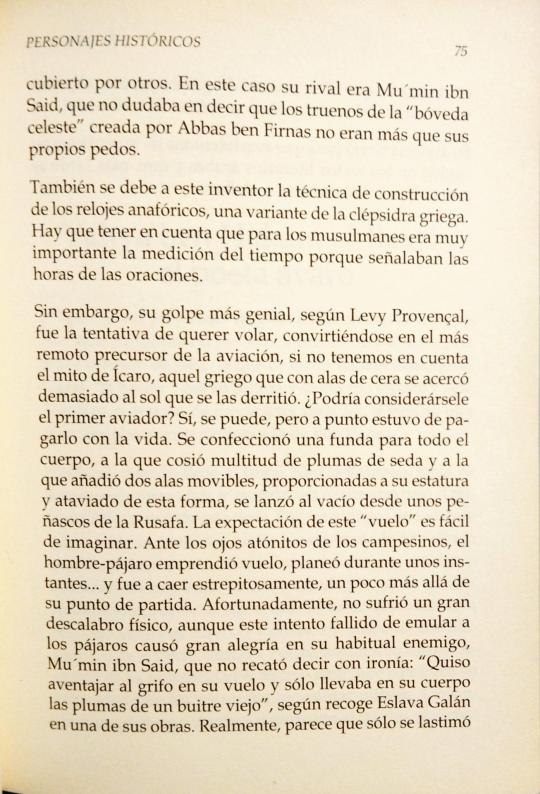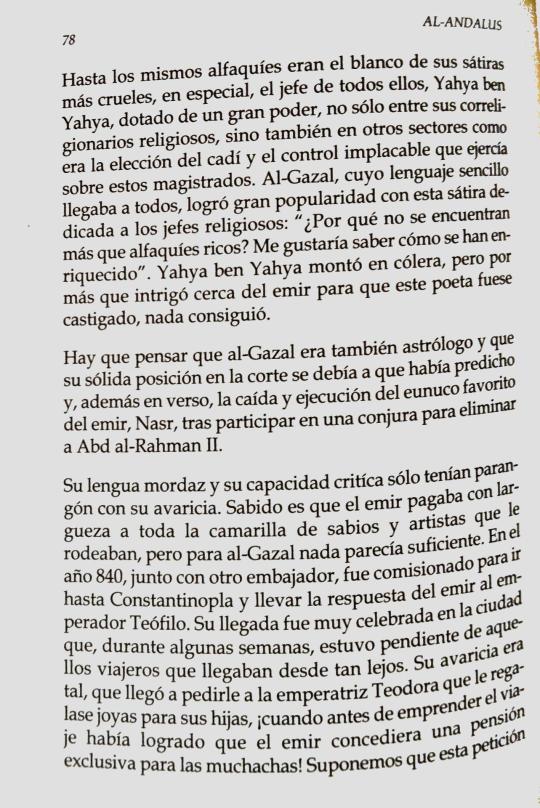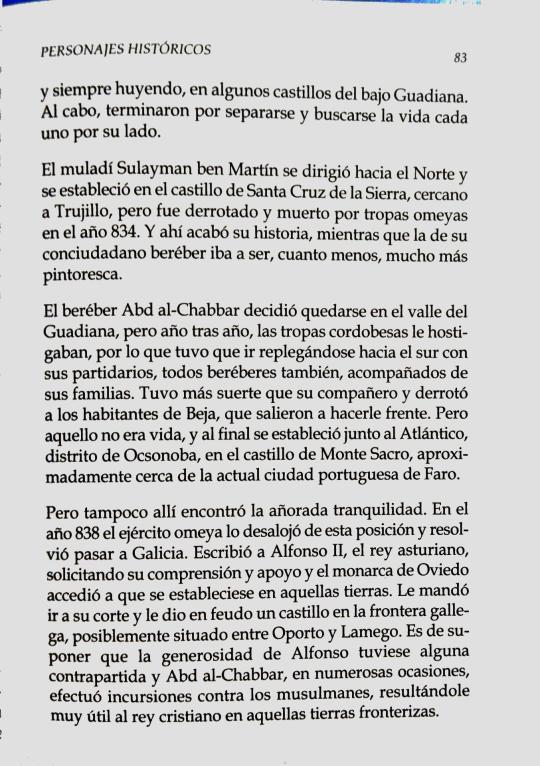#anaphoral
Text
MY toxic trait is that I think I know better than my Latin teachers so I just completely ignore their annotations etc if I disagree ❤️
10 notes
·
View notes
Link
السوابق والجناس أو الإستعارة Antecedent And Anaphor
0 notes
Text
Voice For A #3
Au-dessus c'est la version Director's Cut, si tu n'as pas de compte google ou que tu ne veux pas, je te met une version coupée en plusieurs parties en dessous :
0 notes
Text





[collective image description: a brief exchange on "house".
kutner: "i asked what the odds were that he would've put down food or drink where the dog could reach. he said he put a glass of juice on the floor while he was fixing the television."
house: "the dog was fixing the television?"
kutner: "yes".
\end image description]
0 notes
Text
WWW: What's the "reflexive indicative"?
I've been meaning to write this for a while, but I wasn't sure what it really meant and now I have a theory. I am a professional linguist. I teach translation, so grammar/syntax is something I have spent a lot of time on.
Now, brace yourselves, because I'm going to be explaining modern English grammar and most schools in the English-speaking world are still teaching traditional grammar. I don't know how well versed BLeeM is in modern grammar, but we'll give him the benefit of the doubt.
Let's start with the basics. Indicative is a grammatical mood. Moods effect the reality or truth of a clause. The indicative mood is one of the realis moods, meaning that the clause is true in the tense. (Irrealis moods can make the clause possible, hypothetical, desired, etc.) The other realis mood in English is declarative. The difference is that a declarative clause uses a verb as its predicate and an indicative clause uses a noun or adjective as its predicate.
In modern grammar, the predicate is the word or phrase with the most important meaning. To put it another way, the predicate is the word or phrase that the rest of the sentence "depends" on (see: Parse Tree). So, "I am running" is declarative and "There is a shotgun in the drawer" is indicative.
Whatever magic's "reflexive indicative" is, it's roughly equivalent to "a thing exists" or "a thing is [adjective]".
Next, reflexive is term used in grammar to refer to anaphoric nouns. An anaphor is a word that refers back to another word or concept. In "we climbed a mountain and said mountain was tall", the participial adjective 'said' marks the following noun as an anaphor. Anaphoric nouns are usually analyzed as pronouns; e.g. "itself". Some English pronouns are only sometimes reflexive, like "that".
This means that the "reflexive indicative" has to be a couple things. First, we know it's somatic, so sign language basically. Second, it's a full clause. One gesture for a full clause isn't difficult. In many languages, there are verbs that do not need any nouns to be satisfied. Consider: "It is raining". 'It' is a dummy pronoun; it doesn't mean anything. In ASL, it is a single gesture. However, a reflexive indicative clause must have a noun. In short, the somatic gesture most likely means "a thing mentioned before exists".
My theory is that the reflexive indicative is used as a kind of anchor. It may be a conjunction between two magical actions: "Control the edges of the tear. Those edges are there. Bring them together." It might also be used as punctuation to end an action: "Bring the edges of the tear together. That tear does not exist." or "Connect the edges of the fabric. That fabric is whole."
If this is true, I would theorize that early in the development of wizardry, the reflexive indicative was used either 1) to assist the wizard in their focus (assuming that WWW's magic is the manifestation of will) or 2) doing magic this way was so new that it was "low context". Low context communication involves a lot of specifics and reflexive nouns are more frequent in low than high context communication. Insulated communication systems tend to become higher context over time.
Brennan mentioned that the more people who know a particular spell, the less potent it becomes; hence the Citadel tightly controlling who has access to spells. However, more people knowing a spell might also increase the level of context the spell has, thus making the reflexive indicative unnecessary.
This would make even more sense if magic was always an interaction with the spirit world. Whatever spirit is making Mending possible has become so familiar with it that the reflexive indicative is understood.
But at this point, we are into untethered speculation. That's the theory. We'll see what info Brennan drips out next and if my theory holds up.
106 notes
·
View notes
Text
Butthole Surfers — Rembrandt Pussyhorse (Matador)

Photo by Jerry Milton
Given the amount of ink spilled and pixels configured concerning the music and cultural phenomena associated with the Butthole Surfers, it seems a daunting task to find anything new to say about the band — even about a record as excellent as Rembrandt Pussyhorse, first released 38 years ago (say what) on Touch and Go and presently being given the vinyl reissue treatment by Matador. But two things obviate the perceived difficulty registered just above: somehow, someway, Rembrandt Pussyhorse sounds like it could have come out yesterday on some currently über-hip, punk-adjacent underground label (say, Feel It Records from Cincinnati, or London’s La Vida Es un Mus); and for certain, it feels a very particular, vividly upsetting sort of way to listen to these demented, raging and inspired songs in March of 2024, as we struggle and lurch our way toward spring.
For example: Give “Strangers Die Everyday” a spin and try not to think about Gaza. That shouldn’t be a compelling match, of past music with present, all-too-real event. The song features a nigh-histrionic, Bela-Lugosi-as-the-Count organ, plastic fangs chewing on cheap, drywall scenery. Gibby Haynes does some of his bullhorn-mediated vocal antics, and sounds of bad plumbing bubble up into the mix. It’s the Butts in nightmare mode, which was always a vertiginous blend of ruthless ugliness and brain-rattled hilarity, and there is nothing funny about Gaza. Nothing at all. But keep listening. “Strangers Die Everyday” ends up expressing a deranged pathos. The organ is hammy, but the melody is mournful. The glurping, glooping bubbling evokes looking down a mostly stopped-up drain, which is always a bum-out experience, woven into the textures of the “Everyday” world nodded to in the song’s title. It situates the sadness and disgust in a feeling tone. But just exactly where is your everyday world? If you can tune in and make an additional metaphorical leap (to all the drains in Gaza, and in Myanmar, and in Ethiopia, and elsewhere, all of them backed up and drowned by unstanched cataracts of blood, from the bodies of all of those strangers), you will feel a particular sort of weight in your gut.
The Butts’ best stuff always worked the spaces in which earnestness, nausea and a decidedly bonkers mirthfulness overlap. Perhaps “collide” is a better word for the music’s resulting dynamic. In their early recordings, you can hear them bashing and stumbling their way toward ever-more-effective smash-ups of sharply opposing affects: the delirious one-two punch of “Suicide” and “The Revenge of Anus Presley” from Butthole Surfers (1983); the ebullient, anxious, headlong hallucination that is “Dum Dum” from …Another Man’s Sac (1984). The best performance of that sort of collision on Rembrandt Pussyhorse is “Perry,” which initially registers as a hyperbolic parody of the theme music to Perry Mason. Natch, let the laffs commence. The organ is back, but this time it’s in full Phantom-of-the-Opera mode, rollicking and tempestuous, Lon Chaney grinning horribly. Haynes delivers the laffs, howling and whooping himself breathless.
Keep listening. “Perry” takes its turn toward something more than parodic goofiness when Haynes provides a series of anaphoric itineraries: “It’s about coming of age / It’s about learning how to do it / It’s about learning how to experience things the way they ought to be experienced….” And so on. It’s a reckless thing, following Haynes into that improvisatory philosophical space: How, precisely, should things be experienced? What would a Butthole Surfer say? “It’s talking about being the slave boy / It’s talking about giving head when you’re 6 years old / It’s talking about enjoying these things….” You can just about see Raymond Burr blanch, even in black and white — and sure, it’s the Butts being the Butts, invoking a series of transgressive, taboo images, perhaps only for the charge of the transgression itself.
But there are other ways to hear the transgression. We might take the reference to Perry Mason a little more seriously. In the summer of 1986, just months after Rembrandt Pussyhorse was released, the Meese Commission on Pornography published its final report, a Puritanical screed that sought to throw the full moral weight of the Justice Department (yeah, yeah, I know) behind a juridical condemnation and potential outlawing of sex work, porn consumption and kink. The most liberal — in the hard sense of that word — readings of the Report’s recommendations would likely sanction tossing a band called the Butthole Surfers and songs like “Perry” (and “Lady Sniff,” “The Shah Sleeps in Lee Harvey’s Grave,” “Moving to Florida,” and later just about every song on Locust Abortion Technician and Hairway to Steven…) onto the pile with all the copies of Hustler and Torso and the endless numbers of VCAvideocassettes — not to mention the models and actors themselves, and all the folks who watched them and looked at them and felt pleasure.
It's not a hard history to uncover when you listen closely. Reagan’s reinvigoration of the American Right in part drew upon Jerry Falwell’s political turn, and the idea that evangelicals could have real power if they participated in the electorate, rather than regarding it as the fallen domain of a lesser law. In 2024, the Republican Party takes that evangelical vote for granted, and its full complicity with the array of MAGA-affiliated constituencies has created a new set of political alliances, issuing in events like January 6 and the Q Shaman leading a prayer service in the evacuated Senate chamber. Not sure even Haynes could conjure that image. Return to the record. The echoes of Raymond Burr’s voice, in full closing-statement declamation, reverberate out from “Perry” to the Butts’ magisterial cover of “American Woman”: “All right, you little creep, come out of there! We know your name!” We’ve got you surrounded! Where’s Mike Pence?
No one would argue that the Butts possessed anything like socio-political prescience when they recorded Rembrandt Pussyhorse. They were too busy experiencing things the way they had to experience them, to make the music that they had to make. And some of us enjoyed it. Still do. That may be reason enough to return to the record — or to reissue it. But the band somehow tapped into some very serious energies circulating in the mid-1980s: the Reagan Administration’s bloody-minded Christian nationalism (read some of his speeches, you’ll hear it); the Israeli Labor Party’s “Iron Fist” policy of 1985 and the accompanying intensification of settler activity, all of which would soon lead to the First Intifada. And here we are: Gaza on fire and self-identified Christian Nationalists like MTG and Tommy Tuberville setting policy. Here we are, in the “Whirling Hall of Knives” Haynes and Paul Leary and the rest of the band set in motion in 1986. Even today, especially today, it cuts deep. It draws blood. Strangers die everyday.
Jonathan Shaw
31 notes
·
View notes
Text

First time posting an actual text of conlanging.
The Language is called Samtan (or EmSamta [emsamˈta])
(image description is in the alt text)
nerdy lingo stuff under cut
for ease I'm first gonna post the text again:
"Faktsaqiqmimayka itnoitno stina kcè, vneiyo mahòtholhakva imuvè. Isiska ika isiska ika esphi ika esphi, Mòsla cyoy kuitka, mòsla qnèga. Òtholhakyo lhunummayka ayena, sahiyo êktavmimayka kfòt, alhònkalhònkyo aukmimayka ika deimekyo tumsnèlsnèlpicê. Manae inas esisk òtis – karayona ika muyopmayka. Lhurò-saqiqyamkteka lulhi ika, aukthèyusyona, cimdê-cimdê lha, ika êktavmimayka hayè pai esmupto. Tyofokmikte hutakayo. Tyofokmikte skèrapyo rupta-sikatiyo lha, cètyofokmikte òphòphmiida el lha, cètyòna-kuitmikte òphòpholtu imuyo."
and a gloss:
"BEC-allow-SBJ-1-PLR world like DET.DIST, spirit-PL INFR-cruel CON-evil. wander INTS wander INTS day INTS day, mòsla.PN home so.called, mòsla.PN wasteland. storm-PL pull-SBJ-3a-PLR lifeform, river-PL eat-SBJ-3a-PLR soil, wind-PL howl-SBJ-3a-PLR INTS tree-PL GNO-cower-OBJ-3i. place DEM.PROX NEG-exist NEG – crow-PL INTS fear-OBJ-3a-PLR. hold-stand-PST-SBJ-1-PLR after INTS, wolf-PL-DEF, bird.of.prey~COL and, INTS eat-SBJ-3a-PLR little thing NEG-take. see-SBJ-1 foreign-PL. see-SBJ-1 kalapian.PN-PL four-kingdom-PL and, CONJ-see-SBJ-1 P3~PL-joy iron and, CONJ-return-say-SBJ-1 P3~PL-prize CON-fear."
(most abbreviations follow convention. "BEC" is a prefix loosely translatable as "because", "CON" is a generic marker for verbs that aren't the main verb of the clause)
some things of note:
the words "mòsla", "skèrap" and "rupta-sikati" are proper nouns and refer to places or nations within the world building
"ika" is glossed as an intensifier. in the text it comes up a lot, and serves different purposes. it can be found as a means of enumeration (like in English "day by day"), a anaphorical pronoun and an equivalent of English "even".
Samtan is an unwritten language, the orthography used here is strictly out-of-universe, and for me to document the language.
6 notes
·
View notes
Text
8th part of the bookscans of Al Andalus. Historical Figures, here's the previous part

discovered by others. In this case his rival was Mu'min ibn Said, who did not hesitate to say that the thunders of the “heavenly vault” created by Abbas ben Firnas were no more than his own farts.
The anaphoric clock construction technique is also due to this inventor , a variant of the Greek clopsydra. It must be taken into account that for the measurement of time was very important to Muslims because they indicated
the hours of prayers.
However, his most brilliant stroke, according to Levy Provençal, was the attempt to wanting to fly, becoming the most remote precursor of aviation, if not
We take into account the myth of Icarus, that Greek who with wings of wax
He got too close to the sun and it melted them. ;It could be considered the first
aviator? Yes, it is possible, but he was about to pay for it with his life. He made a cover for the entire body, to which he sewed a multitude of feathers
of silk and to which he added two movable wings, proportionate to his height and
Dressed in this way, he jumped into the void from some rocks in Rusafa. The
Expectation of this "flight" is easy to imagine. Before the astonished eyes of the
peasants, the bird-man took flight, glided for a few moments... and fell with a crash, a little beyond his starting point.
Fortunately, he did not suffer a major physical disaster, although this attempt
failure to emulate the birds caused great joy to his usual enemy, Mu'min
ibn Said, who did not shy away from saying ironically: "He wanted to surpass the griffin in his flight and he only had on his body the feathers of an old vulture," according to Eslava Galán in one of his works. Really, it seems like he just got hurt

the rear, since he did not realize that birds, when landing, use the tail, and he had not made a tail!
His audacity served to ensure that this attempted flight was collected in the
Arabic literary texts and which were later transmitted to the Castilian romances.

Yahya ben Hakam al-Bakri:
the misery poet
One of the most influential figures at the court of Abd al-Rahman II was Yahya ben Hakam al-Bakri, an Arab from Jaén, who as a young man had called al-Gazal, “the gazelle", for its beauty and its slender body and agile. It was also a unique character, although in another area completely
different from that of Ben Firmas.
Al-Gazal, when Abd al-Rahman came to the throne, was already over fifty years old, and he would die almost a hundred years old under the reign of this emir's successor. It was a miracle that he lived so long, since his profession could be considered high risk in al-Andalus: it was neither more nor less, the most sarcastic and hurtful poet of the moment, feared and hated
in equal parts. No one was safe from his hurtful verses, as hurtful as they were.
His words, direct and harsh, without a hint of complacency or literary artifice.
Possibly only the emir himself, who admired his capacity for witty responses, although they were often rude and left the sufferer unarmed

Even the alfaquíes themselves were the target of their cruelest satires, in especially, the chief of them all, Yahya ben Yahya, endowed with great power, did not
only among their religious coreligionists, but also in other sectors such as
was the choice of the cadi and the implacable control he exercised over these
magistrates. Al-Gazal, whose simple language reached everyone, achieved great
popularity with this satire dedicated to religious leaders: "Why don't you find more than rich alfaquíes? I would like to know how they have become rich." Yahya ben Yahya was furious, but no matter how much he intrigued of the emir for this poet to be punished, he achieved nothing.
It must be considered that al-Gazal was also an astrologer and that his solid position in the court was because he had predicted and, also in verse, the fall and execution of the emir's favorite eunuch, Nasr, after participating in a plot to eliminate to Abd al-Rahman II.
His biting tongue and critical ability were only matched by his greed.
It is known that the emir paid lavishly the entire clique of wise men and women artistsb around him, but for al-Gazal nothing seemed enough. In the year
840, together with another ambassador, was commissioned to go to Constantinople and take the emir's response to Emperor Theophilus. His arrival was greatly celebrated in the city that, for a few weeks, was attentive to those travelers who came from so far away. His greed was such that he even asked the Empress Theodora to give him jewels for his daughters, when before undertaking the trip had managed to get the emir to grant an exclusive pension for the girls! We assume that this request

Imust have surprised the empress quite a bit. That an ambassador of the
prosperous al-Andalus, whose prince was known for his generosity,
making such a demand would cause a more than dubious impression on the noble lady about that begging poet and ambassador!

Abd al-Chabbar and Sulayman ben Martin:
the rebels of Merida
The cities of the Marches, generally far from Córdoba, were very prone to any type of rebellion against central power. And Mérida, capital of the Lower March, with a territory that bordered Galicia, lands
belonging to the enemy with whom frequent relations were maintained, not
was an exception when it came to rebelling. Mérida was one of the few cities
which had offered very tenacious resistance in the early days of the Arab invasion, which they only managed to conquer after a long siege.
Its population was made up of many muladíes, or Christian converts to the
Islam, and a good number of Mozarabs, and both had a character quite rebellious. On the other hand, it seems that the Asturian king, Alfonso II, and even Louis the Pious, the French monarch, encouraged any rebellious movement,
because everything was worth to weaken the Umayyad power.

In the year 828 the inhabitants of Mérida, grouped under the command of two
insurgents, the Berber Abd al-Chabbar and the muladi Sulayman Ben Martín,
They broke all the ties they maintained with the central power and murdered the
legal governor of the city. They became masters of the situation, but after a year
Abd al-Rahman II, at the head of a column of repression, laid siege to the city without being able to surrender it. Then we proceeded as usual in those times: all the crops were burned and the land was devastated in the surrounding areas so that the rioters could not get supplies, but the emir,'s troops had to withdraw without any success. That couldn't stay like this
and in 830 a new siege was carried out.
Whether because the situation was compromised, or because they had not yet
recovered from the previous site, the inhabitants of Mérida had to hand over
hostages and accept a governor loyal to Córdoba, Harith ben Bazi. But this mission can be said to have only been a flower of a day, since in the years following, Abd al-Rahman II had to besiege the square on numerous occasions until they managed to pacify the Lower March and make Mérida return to the Umayyad obedience. It is believed that this was achieved around the year 834. In any case, to ensure the position of the loyal troops that remained in the rebellious city, in 835 a fortified redoubt was built, surrounded by a
wall that was twelve cubits wide.
The two rebel leaders had to flee. It was not possible to stay in Mérida without falling into the hands of successive loyal governors who would have ended with them. At first both sought refuge in Badajoz, and later

and always fleeing, in some castles in lower Guadiana. Eventually, they ended up
separate and look for life each on their own.
The muladí Sulayman ben Martín headed north and settled in the castle
of Santa Cruz de la Sierra, near Trujillo, but was defeated and killed by Umayyad troops in the year 834. And there his story ended, while that of his fellow Berber citizen was going to be, to say the least, much more picturesque.
The Berber Abd al-Chabbar decided to stay in the Guadiana valley, but year after
year, the Córdoba troops harassed him, so he had to retreat towards the south with his supporters, all Berbers too, accompanied by their families. He was luckier than his companion and defeated the inhabitants of Beja, who came out to face him. But that was not life, and in the end he settled down next to the Atlantic, district of Ocsonoba, in the castle of Monte Sacro, approximately near the present-day Portuguese city of Faro.
But he didn't find the longed-for tranquility there either. In the year 838 the Umayyad army removed him from this position and decided to go to Galicia. He wrote to Alfonso II, the Asturian king, requesting his understanding and support and the monarch of Oviedo agreed to settle in those lands. He sent him to his court and gave him a fief castle on the Galician border, possibly located between Porto and Lamego. It's possible to suppose that Alfonso's generosity had some counterpart and Abd al-Chabbar, on numerous occasions, carried out raids against the Muslims, proving very useful to the Christian king in those border lands.

Time passed and everything seemed to be fine between the Berber and Alfonso, but
feeling himself getting older, the rebel from Mérida became remorseful. He was
acting in favor of Christians, against their origin and their religion... perhaps
he didn't have much time to live and it was better to make amends while he still had
time. In the greatest of secrets he sent a letter to the emir Abd al-Rahman II,
asking for forgiveness for having behaved as he did, and the emir was quick to comply with her wishes. He was forgiven, but while he held dealings with Córdoba, Alfonso II found out about all these movements of his former ally and sent him urgently to Oviedo.
Abd al-Chabbar did not attend the appointment, claiming that he was ill. The Asturian monarch, convinced that "the goat always shoots into the mountains", did not doubt that his vassal had returned to the Umayyad cause and decided to fight him in his own fiefdom. The sick, who was not such, made a sortie on the enemy camp, and despite who was, like all Arabs, an accomplished horseman, the horse threw him. Fell wounded, he was taken prisoner and died in the year 840, in the month of May.
Abd al-Chabbar's entire family, by order of Alfonso II, was transferred to Galicia.
This Berber had a sister, whose beauty was known and admired by everyone who saw her and that it would help her marry a Galician nobleman, after, of course, she converted to Christianity. This marriage
had a son, who according to the Arab historian Ibn Hayyan, would later become a bishop of Santiago de Compostela.
Of course, "the ways of the Lord are infinite"!
#al andalus. historical figures#al andalus. personajes históricos#bookblr#historyblr#al andalus#al andalus history#spanish history#book scans#emirate of cordoba#abbás ibn firnás#yahya ibn hakam al-bakri#abd al-chabbar#sulayman ibn martin
6 notes
·
View notes
Text
i think about the feinberg pronouns quote a lot—that people can be respectful with the wrong pronoun, disrespectful with the right one. and it’s not quite the same, but switch the notion of “respect” with “recognition” here, and it remains true. i use any pronouns with the trans people i trust, because i know that their use of literally any pronoun will occur with the understanding that the pronoun does not forcibly locate me within the space of gender. a friend may use a particular pronoun connotatively, but never with the implication that i am to be found in a particular way-of-being that is supposed to be encapsulated by that pronoun. they recognize that the pronoun cannot bind me (except linguistically, anaphorically—lol).
this is not true of my well-meaning mother who, for all her efforts, does not understand the realm of gender-expansiveness. she uses “she” for me (in english, our mother tongue lacks gendered pronouns) because she thinks it will affirm me. in practice, i know from my conversations with her that every time she refers to me by she/her/hers, she’s attempting to position me within a specific space of gender which she understands as womanhood. what is affirmation to her is actually restriction. her understanding of gender is carved out into spaces that can be equivocated to pronoun sets, so it is impossible for her to use a pronoun for me in a way that feels affirmative. she just doesn’t have the conceptual apparatus to recognize my experience of gender. importantly, i don’t blame her for this: it’s just one of those situations where two people can be doing their best and still sitting with discomfort between them. i blame the hegemonies that have walled gender and language in my mom’s conception, if anything.
8 notes
·
View notes
Text
i want to see how you bend, how you twist, how you curl and unfurl, how you spin and contort, how you splinter and shatter / love, what's the matter, wasn't everything properly enough / or did my pretty eyes fall to the floor and melt into dust / rusting ruined rustic abandoned thoughts of dysthanasia / starting every sentence with anaphoric "i love you" / i suppose poetry and prose are my favorite euthanasia / because nothing else can bring me back as well as stories do / i am a story myself, and my façade is a strangled cry for help / my hands are around my very own neck / oh, how i choke and i provoke a sort of self-arranged death / it is all so natural, the way we fall back into numbers / we are 7, we are 12 / learning how to count ourselves / here we are fixated on our names and favorite words and colors / i jerk and stutter forming shapes / only my mind can create / c-o-n-t-o-r-t-i-o-n-i-s-t / unbecoming what i am for what i want to be / why can't i form pretty shapes with my broken body / inelegant as i am now i hope you'll still love me / cry for help! cry for help! before we forget / all our names and pieces of whatever there is left / cry for help! cry for help! someone ring the bell / oh, someone please, oh, someone do, please save me from my selves
2 notes
·
View notes
Text
Chapitre X : Anaphore
[Publication originale : 25 septembre 2023]
Lundi 25 septembre 2017, 6 ans depuis la dernière fois que je ne t’ai vu. J’ai parfois l’impression que le temps radote.
« Somewhere deep inside.
You must know
I miss you.
But what can I say?
Rules must be obeyed. »
Je me souviens de la douceur de tes cheveux
Je me souviens de Valentina
Je me souviens de tes lacets dépareillés
Je me souviens de la chaleur de tes reins
Je me souviens de tes seins
Je me souviens de la couleur de tes yeux
Je me souviens de l’odeur de ton parfum
Je me souviens du timbre de ta voix
Je me souviens de tes Miel Pops
Je me souviens du sirop de menthe
Je me souviens du cheval rouge
Je me souviens du cheval que tu as perdu
Je me souviens de nos hypothétiques ballades en forêt
Je me souviens de ton doigt d’honneur
Je me souviens de la sonnerie de ton réveil
Je me souviens de ta lettre
Je me souviens des photos que tu m’as envoyées
Je me souviens du moment où tu es partie
Je me souviens des marques que tu as laissées sur mon corps
Je me souviens de tes problèmes de médicaments
Je me souviens de tes blessures
Je me souviens de nos nuits
Je me souviens de tes mains
Je me souviens des éoliennes
Je me souviens de tes tatouages
Je me souviens de ce que tu m’as appris
Je me souviens des dimanches
Je me souviens des jours pluvieux
Je me souviens des endroits où j’étais en te parlant, tous.
J’ai besoin de tes mots
J’ai besoin d’entendre ta voix
J’ai besoin de ta respiration dans mon oreille
J’ai besoin de tes points suspension
J’ai besoin de tes chansons
Je me sens bien quand je pense à toi
Je me sens bien quand j’écris pour toi
Je me sens bien quand je crois que tu as besoin de moi
Je me sens bien quand je rêve de toi
Je me sens bien quand on se parle
Je me sens bien quand on partage des choses
Voilà ce texte un peu différent des autres, j’ai essayé des choses même si je me demande si ce n’est pas le dernier, en fait.
L’une des raisons principales d’écrire ici c’est d’être connecté à toi, et j’échoue à chaque fois, je sais bien que j’ai dit que je ne voulais pas de réponse la dernière fois, mais sans réponses, ça ne me donne pas envie de continuer. Sans réponses, je n’écrirai plus, tu resteras dans ma tête, tu l’as toujours été, mais ça ne sortira plus. Je me bats contre quelque chose que je ne peux pas vaincre, je me bats pour exister là-bas où tu vas, mais je perds à chaque fois, parce que tu n’as plus besoin de personne aujourd’hui, et certainement pas de moi. Tu n’existes vraiment que là-bas, et moi je n’existe qu’ici, nous sommes effectivement bloqués dans un espace-temps, mais pas dans le même.
Tu pourras m’ignorer ou ne pas me parler tant que tu veux, me répéter que je ne dois pas insister avec toi, ça n’y changera rien, mes sentiments sont réels et sincères, ils ne m’ont pas quitté depuis toutes ces années, je n’insisterai plus sur mes sentiments comme je l’ai fait, mais tu pourras toujours compter sur moi quand tu en auras besoin, sur mon indéfectible soutien, même si ça ne sera pas le cas pour moi, même si tu ne m’aime pas, mais ce n’est pas une raison pour t’abandonner, je ne le ferais jamais, Sache-le.
Je voulais juste te faire comprendre à quel point je tenais à toi et à quel point j’ai besoin de toi, je ne t’ai jamais vraiment laissé tomber, je me suis juste tu, mais visiblement j’ai échoué. Si tu le désires toujours je continuerai à écrire, je ne sais juste pas encore sur quoi. Dans le cas contraire, je garderais le silence et le chapitre final prendra place de chapitre XI.
J’espère à très bientôt, Aurélie, moi je l’aime bien ce prénom.
Il y a longtemps tu m’avais dit que tu avais un parfum pour chaque saison, je n’ai connu que la toi de l’été, j’aimerais connaître tes autres saisons.
« It’s only words … and words are all I have, to take your heart away. »
Passenger – Let Her Go
Adé – Insomnies
Jeanne Added - Au Revoir
The Zombies – She’s not there
Bryan Adams – Please Forgive Me
Creedence Clearwater Revival – My Baby Left Me
0 notes
Text
Arrêt-minute chez un psy... spi
Pourquoi tout va-t-il si mal, en France ? En y réfléchissant, être élu Président de la République, ça doit être à la fois grisant et tout-à-fait déstabilisant, sur la distance. Comment, en effet, ne pas s'imaginer que la France entière (villes, villages, plages, campagnes, montagnes et îles lointaines) a décidé que vous seul aviez les qualités (donc l'intelligence !) pour dessiner l'Histoire, dont vous allez faire partie ? On doit se répéter : ''Entre Louis XIV , Napoléon, De Gaulle et moi, il y a continuité : ils étaient ce que je suis, je suis ce qu'ils furent''. Oubliés, les petits arrangements, les compromissions, les reniements, les mensonges, la chance... et le hasard !
Et, dans le cas de Macron –qui est notre problème du moment-- comment oublier, en outre, le travail de sape que ses prédécesseurs ont mené depuis Mitterrand, comme une idée fixe mais électoralement payante, pour savonner la planche à la famille le Pen, en la rendant socialement infréquentable ? Comment oublier le faible pourcentage des suffrages exprimés, qui réduit une élection prétendue ''au suffrage universel'' à une mini-représentativité plus étique qu'éthique ? Comment oublier le rôle d'une Presse corrompue par les subventions étatiques et tout aussi inculte qu’esclave de la mode, qui va chercher à Gauche-toute la totalité d'idées-toutes-faites dont elle est incapable de comprendre la perversité et le caractère mortifère ?
On peut supposer qu'il n'est pas dans la nature d'un candidat à la présidence –par définition narcissique, sinon il n'aurait pas été là où il fallait être, ni fait ce qu'il fallait faire, ni dit ce qu'il fallait dire pour se retrouver dans la ''short list''-- de regarder en arrière, de s'arrêter aux détails, de se remettre en cause, et de se voir tel qu'il est ! Le premier ''pré-requis'' pour ''candidater'' à la présidence de la République, c'est d'être prêt à tout, à tout dire, à tout faire, à tout avaler, à tout travestir, à tout oublier –pour tuer, moralement, civilement, voire physiquement (pour Fillon, par exemple : les trois !) ceux qui vous gênent ou pourraient vous faire de l'ombre (NB – on pense aux mensonges XXL contenus dans l''anaphore'' qui fit élire Hollande en 2012 : il était l'archétype grandeur nature... de ce qu'il reprochait à tort à Sarkozy !). C'est pour éviter des Giscard, Chirac, Hollande, Macron –et même, à un degré moindre, Sarkozy--, que j'avais voté ''Non'' à ce référendum (comme aux huit autres) : la probabilité statistique d'avoir un second De Gaulle était vraiment très, très faible !
Oui, mais voilà... le jour du scrutin arrive et ''c'est vous le gagnant'' (et nous les grands perdants). Et c'est dès cet instant précis qu'éclate la différence entre un petit joueur et un De Gaulle –auquel nous devons, pourtant, l'idée de cette élection présidentielle façon ''roulette belge'' (5 balles et un seul ''blanc'', son homologue dite russe ayant 5 blancs pour une balle !) : il suffit de lire la liste des successeurs du Général et de Pompidou : la cause est entendue ! Seul ennui : le seul qui ne l'a pas compris, c'est notre actuel vainqueur des 2 dernières ''courses au trésor'' : comme Mélenchon –dit ''méchencon'' par les gens lucides--, il se croit ''le Président de tous les français''... (ce qu'il se donne un mal de chien pour ne pas être, en plus), grâce aux suffrages de 27% de 65% des électeurs, ce qui fait 17 % du corps électoral, soit une très très petite non-majorité d'idées et de ralliement à son absence totale de programme, et se croit autorisé de proclamer : ''La République, c'est Moâ !''.
Dans le fond, c’est Macron et lui seul (plus son inexpérience, ses échecs, son manque d'existence, sa superficialité, son mépris pour ses ''sujets'', son absence dramatique de ''vista'', son progressisme mortifère, sa superbe, et son autoritarisme omni-présent (et omni-malfaisant : il ne faudra jamais oublier ''son'' confinement –plutôt le nôtre, et si peu ''finement'' mené !-- ses conséquences et l'entêtement puéril à les nier. Cette tache est si énorme qu'elle suffit à tout rejeter en bloc. Pareil, pour l'immigration, niée perinde ac cadaver (= à mort), et pour la priorité donnée aux analyses de Greta Thunberg, contre toute réalité)... qui est l’obstacle qui empêche, jour après jour, la France de se redresser, d'être elle-même, de vivre heureuse, comme elle en rêve… et, tout simplement, d'avoir un futur. Avec le temps qui passe, les défauts de ce système se révèlent dans toute leur horreur, aggravée par le fait qu'une partie des castes qui se croient ''supérieures'' (Ouaf, ouaf, ouaf !) et de la bourgeoisie ont été ‘’eues’’ par le chant de cette pseudo-sirène masculine...
En toute honnêteté, la vérité est à chercher aussi, au-delà de Macron, dans les fautes graves des nuls qui ont précédé l'actuel : entre les pertes de souveraineté signées et con-tresignées, les abandons, les négligences, les ''laisser pisser'' (Je demande pardon. Mais c'est tout de même ça, le seul ‘’fil conducteur’’ de notre politique étrangère et européenne, depuis Pompidou !), nos présidents successifs ont enfermé la France dans une impuissance structurelle permanente au profit (?) d'une Europe devenue cauchemardesque --la grosse commission de Bruxelles y est pour beaucoup, du corrompu (et stupide) Jose-Manuel Barroso à la walkyrie du wokisme Ursula von der Leyen, en passant par Jean-Claude Junker, saoul comme un polonais dès 9 heures du matin, et qui racontait ses ‘’discussions avec les chefs des autres galaxies'' (sic ! La vidéo est encore visible, sur le Net !). Un proverbe affirme que ‘’le pouvoir rend fou’’, ces trois exemples lui donnent amplement raison.
Mais qui dit ''impuissance structurelle'' dit : plus aucun impact possible sur ''le futur de nos enfants’’ –comme le dit si drôlement Macron, qui n'en a pas. Notre totale dépendance aux Etats-unis, ces ex-amis devenus ''drogués à leur première place'' contestée (par la Chine) pour la première fois de leur courte histoire, nous paralyse et nous ringardise depuis le superbe ''coup de gueule'' de Dominique de Villepin contre la néfaste intervention américaine en Irak (NB : pensez comme le monde irait mieux, sans cette immense connerie... et sans la nôtre, parallèle, en Libye !) : nous sommes condamnés à suivre les erreurs de jugement d'un vieillard sénile qui risque de nous mener à une vitrification de l'Europe par haine ''perso'' envers Poutine (qui, d'accord, n'est que ce qu'il est, lui aussi... mais c'est un autre sujet).
Il y a plus grave encore : nous avons lié notre destin à une Europe confisquée et dénaturée par des technocrates progressistes qui, telle qu'elle est, ne peut nous entraîner que de catastrophe en catastrophe... Ces deux paralysies forcées ne sont, en dernier ressort, que le résultat d'un manque total de vision... doublé d'une trouille permanente d'agir pour sortir de ce piège, ce double handicap expliquant pourquoi nos ''dirigeants'' à qui il ne reste rien à diriger, en sont réduits à meubler leur temps vide à... ce qui leur reste permis, comme aire de jeux : tout casser !
Alors... à grands coups le lois scélérates dites à tort ''sociétales'', ils font joujou à détricoter la France, son Histoire, sa culture, sa langue, ses amitiés historiques, sa société, sa joie de vivre, ses richesses, ses sites (par l'adjonction, exclusivement contre-productive, d'éoliennes écologiquement indéfendables), son identité –et celle de ses habitants --dont une autre partie du jeu consiste soit ''à les emmerder parce qu'on a envie'', soit à nier leur existence et à les remplacer par des ''migrants'' (sic !) qui ont pour seul but de prendre leur place (Si vous en doutez, foncez sur le net, et tapez ''la gestion de la barbarie''. Vous trouverez-là un ‘’manifeste du Grand Remplacement’’, vous savez... ce ''truc'' que tous nos hommes politiques et 97 % de la Presse affirment être un épouvantail inventé par l'extrême droite –comme si son auteur, le sinistre Abou Bakr Nagy, avait pu être autre chose qu'un islamo-gauchiste devenu monstrueux ! (mes références : Al Arabiya Institute for Studies).
Impuissance géopolitique organisée, abandon de toute référence nationale, capitulation sans condition devant le néo-jusqu'au boutisme des démocrates américains et la folie des progressouillards bruxellois, volonté de ''détricoter'' la France –ce ''petit village gaulois qui résiste à l'envahisseur'' (en criant, comme les pirates d’Astérix : ''Les GAU... les GAU GAU... les Gauchistes'' !)-- un nouveau monde rêvant d’un monde nouveau... mais jamais défini : il est impossible, mortifère et létal, tout à la fois : un rêve, pour nos malfaisants !
Ce petit arrêt rapide sur le sofa d'un psy-speed aura peut-être permis à certains de comprendre pourquoi tout va si mal, dans ce qui reste de ce qui fut la France : le serpent se mord la queue, et la boucle est bouclée. Seul ennui : tout semble être bien verrouillé, et on ne voit pas, à ce jour, d'où pourrait venir une solution !
H-Cl.
7 notes
·
View notes
Text
Chapter 2 of FIT is up! This time, Jason and Tim. I'm really proud of the writing on this one, which basically means do you want to watch me use anaphor like my life depends on it?
2 notes
·
View notes
Photo

NOTE DE LECTURE :
Médée Kali. Laurent Gaudé. 2003
Je me souviens d'une soirée de poésie il y a quelques années où un extrait de ce texte avait été donné et m'avait fort impressionnée. Je me souviens avoir écrit ma version de Médée ou de Méduse dans Métamorphoses et Anaphores. Je me souviens, et je suis.
Laurent Gaudé fait de Médée Kali un personnage puissant, au croisement de deux cultures antiques (grecque et hindoue), puisant dans les mythologies pour porter dans un langage poétique et incantatoire la parole d'une femme meurtrière et meurtrie.
C'est donc le monologue d'une femme, adressée à l'homme, lecteur ou spectateur, comme à ses enfants assassinés. Autour d'elle, on sent l'amour comme la mort, au même goût de sacrifice, donnant au texte de théâtre une dimension dramatique. Avec elle, je goûte l'ivresse et le poison, et je vois toutes les facettes de cette féminité, aux multiples possibles (même Méduse), et en premier celui de la réécriture, celle de l'auteur, celle du personnage dont le meurtre annule l'histoire.
Par elle, je vais jusqu'à la chute... de la pièce et de sa tête décapitée.
6 notes
·
View notes
Text
目を逸らさずに、立ち向かえ
L'événement @ Rectangle Productions 他
Directed by Audrey Diwan
執拗に観客を主人公と同化させようと試みる作品というものがある。やり方を間違えると白けるだけだが、本作は難なく成功している。スタンダードサイズの画面、彼女を追って周りがボケているピントの合わせ方。これら技術的な面も手伝っていることも確かだが、何よりとある「病気」が自分の身に降りかかるという状況が有無を言わせず全ての人間に当事者意識を植え付ける。彼女のバックグラウンドや、選択、考え方、仕草を気に入る気に入らないといった、通常主人公を批判的に見る隙を観客に与えることはない。観客は始めから彼女の肉体に囚われ、逃げることができない。
病気と書いたが、それは主人公が言うところの「女だけがかかる病気」「主婦になるという病」、すなわち妊娠である。大学生の主人公 Anamaria Vartolomei は予期せぬ妊娠に直面し、これでは文学あるいは国語の教師になりたいという夢を諦めなければならなず、自分の人生を捨てなければならない危機に見舞われる。しかし 1963年当時フランスでは中絶は違法であり、彼女を助けることができる真っ当な方法は存在しない。彼女は、アンダーグラウンドの中絶手術を求めることとなる。
冒頭の授業で詩の授業が行われている。読まれているのは戦争を描いた Louis Aragon の詩 « Elsa au miroir » である。
教授が Vartolomei に質問する。「この手法をなんと言いますか?」 « Une Anaphore » 「首句反復」と答える彼女。単語の響き、アンシェヌマン(フランス語の発音ルール)が起きてこう聞こえる。 « Une Nana Forte » 「強い女」。戦争に巻き込まれる強い女とは何者か?
それは、一つに原作者の Annie Ernaux のことである。彼女の実体験を映画化した本作は、壮絶で孤独な戦いに身を投じる若い女性を描く。私はカメラワークが László Nemes の 「サウルの息子」や「サンセット」といった作品のようだと感じたが、戦禍の中、主人公がどこにピントを合わせて世の中を見ているかという点さえも観客に主人公との同化を強いる意味では当然の選択だったのだろう。観客は、彼女が見ていないものは知るよしもないが、逆に彼女が見ているものは全てくっきり見せつけられる。さらに、サスペンス的要素もこの作品の危機感をドライブする。3週、7週などとカウントアップされていくクレジットは焦燥感を煽り、観ている側もパニックに襲われそうになるのだ。戦争、病気といった非日常に突入したことによって、もはや自分にとって時間の数え方が変わってしまう。しかしこれはある意味、妊娠という状況でなくとも男女の大きな違いかもしれない。28という数字を聞いて、男はなんのことだろうと首を傾げるなどよくある話だ。
さて、妊娠が分かったヒロインだが60年代フランスにおいて人工妊娠中絶はいかにタブーであったかを思い知らされる場面が次々と出現する。まず、医者が「生理が来るように」無言で処方した薬は精力剤で胎児を元気付けるものだったという騙し討ち。あるいは、女友達は雑談の中で子供を堕すことを「冗談でも言わないで」と真顔で言う。当然の成り行きで、打ち明けた途端に巻き込まないでほしいと友人関係も疎遠になる。時間が経ってから、仲良し三人組の一人だった Luàna Bajrami が私は欲望のままに男と遊んだけれど、妊娠しなかったのは運が良かっただけど心の中を Vartolomei に打ち明けて歩み寄るシーンがあるが、 « Portrait de la Jeune Fille en Feu » で彼女は周りの登場人物にあんなに堕胎に協力してもらってたのに、本作での主人公への仕打ちはあまりじゃないか!と突っ込んだ。笑
追い詰められた彼女に手を貸したのは、悪い遊びを知っている男友達 Kacey Mottet Klein 。「経験がある」という学生 Alice de Lencquesaing にアンダーグラウンドで手術を請け負う Sandrine Bonnaire を紹介される。 Alice は告げる。手術のあと医者が「流産」と書くか「中絶」と書くかは運次第。後者ならみんな-妊婦、手術した人、協力者-刑務所行きだと。手術費用は400フラン。Vartolomei は大事な蔵書を売って金を工面する。そこで売られているのは Simone de Beauvoir や 冒頭の Aragon の著作。自由やそれを奪う戦争について彼女がいかに考えを巡らせているかを垣間見せる一場面だ。ちなみに、フランスは1789年の革命の頃まで中絶は合法だった。それが禁止されたのは1810年から。理由は、 Napoléon Bonaparte による戦争。国民全員が何らかの形で戦争に関わることになる近代国家にとって、人口の量と質の管理は至上命題であり、子供を勝手に堕ろされては政府にとって不都合だったのである。
クライマックスとなる堕胎の場面は、 Bonnaire の自宅へ足を踏み入れてから手術完了まで長尺のワンショットで見せる。ショットを映画における瞬きとするならば、ここは瞬きなしの一呼吸だ。一度目の手術では胎児は持ち堪えて失敗。もういちどと Bonnaire を説得し行った2回目では成功。彼女は大学の寮に戻ってから激痛に耐えた末、トイレで亡骸を産み落とす。この場面では便座に座る彼女を正面からカメラが捉えているのだが、ほんの少し下へ向けられる瞬間がある。そこには血だらけの肉塊が臍の緒一本で Vartolomei と繋がっている姿が映される。女性は血と肉、すなわち命をかけて妊娠をするものなのだという事実を観客に見せる姿勢に容赦はない。それが本作の映画化にあたり、考えられうる限り最大の誠実さを証明していることは言うまでもない。
最後には世間が行う時間の捉え方7月5日の文学の試験で幕を閉じる。試験前に教授が引用するのは Victor Hugo の言葉だ。その内容も顔を上げて、旗を掲げて歩めという戦争もの。若者たちよ、強い女性たちよ、歩き闘い続けよというメッセージが込められていた。
なお、この闘いは現在も進行中である。法律は変えられる恐れがあるからとフランスでは先月24日、憲法に中絶へのアクセス権を明記する憲法改正案が国民議会で可決されたばかりだ。右派が過半数を取る上院での可決は難しいらしいが、 US の動向に対する反動としても議論は続いていくだろう。最後に余談だが、成績が下がってきたヒロインに対し教授が冷たい態度をとったせいで Vartolomei ならぬ Ernaux は教師になんかならず作家になりたいと思ったのではないだろうか。であるならば、 Nobel 賞作家の第一歩を歩ませたという意味で彼はグッジョブだ。笑
2 notes
·
View notes
Text
The syntax of Greek split reciprocals.
We provide the first detailed description and analysis of the syntax of the understudied Greek split reciprocal reconstruction. As in other languages, the reciprocal appears to be bipartite consisting of a quantificational distributor (‘the one’) and a reciprocator (‘the other’). We show that, in Greek, this bipartiteness runs deep: the two parts are syntactically independent, with the reciprocator having the syntax of a Condition A anaphor, and the distributor behaving as a floating quantifier. Once we turn to how these elements establish relations between themselves and their antecedent, we find that Greek reciprocals resist a movement- or Agree-based analysis, since both elements can occur in positions inaccessible to movement/Agree. Given that the reciprocator can occur in embedded subject position, the Greek data also argue against recent attempts to reduce the binding domain to phases, instead supporting a more traditional definition of the binding domain in terms of the smallest XP containing the anaphor and a subject. Finally, we show that the morphosyntactic properties of the bipartite construction can be connected to independent properties of its two component parts and that these can, in turn, be related to interpretive aspects of reciprocity.

The syntax of Greek split reciprocals
#morphosyntactic properties#independent properties#interpretive aspects#reciprocity#greek#sign language#syntax#lingustics
0 notes